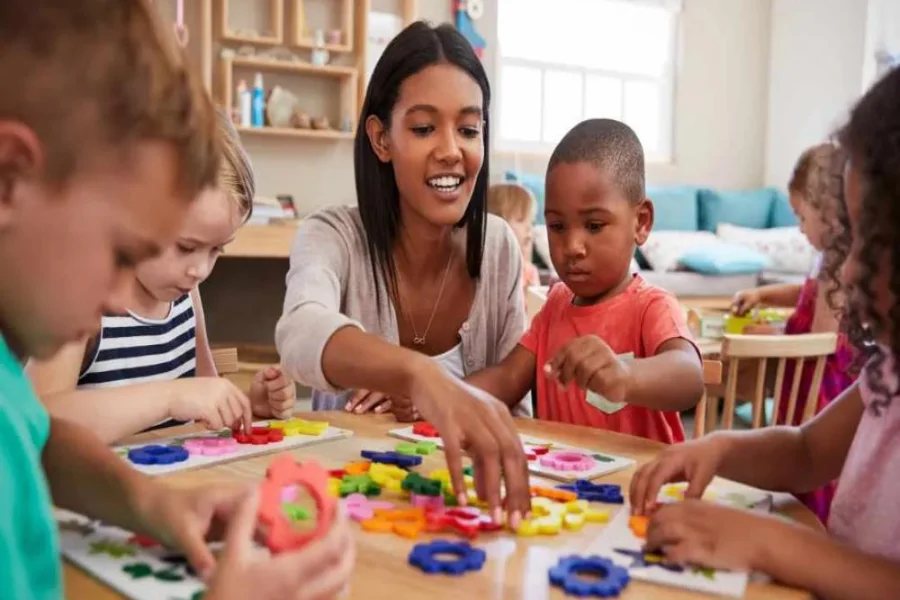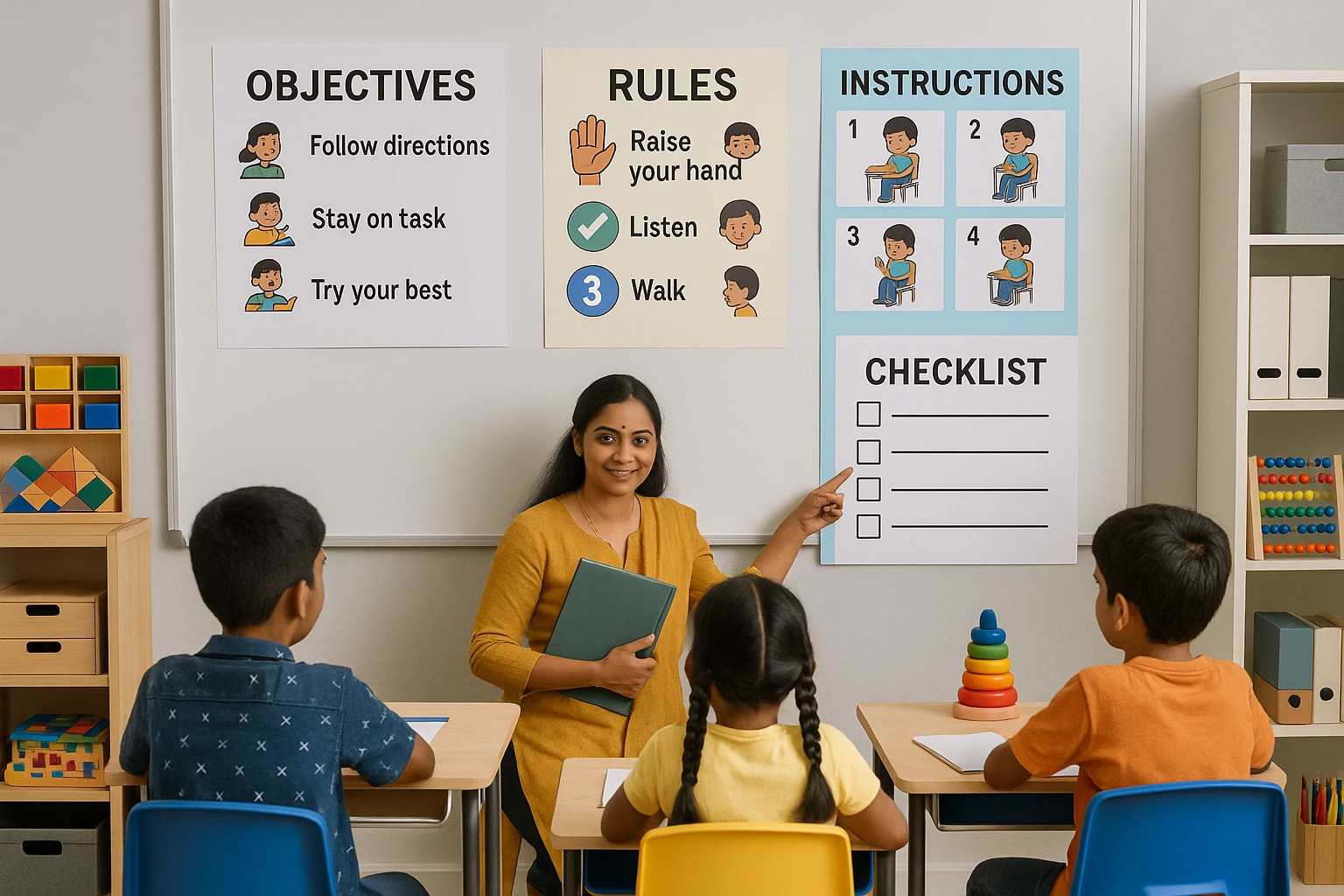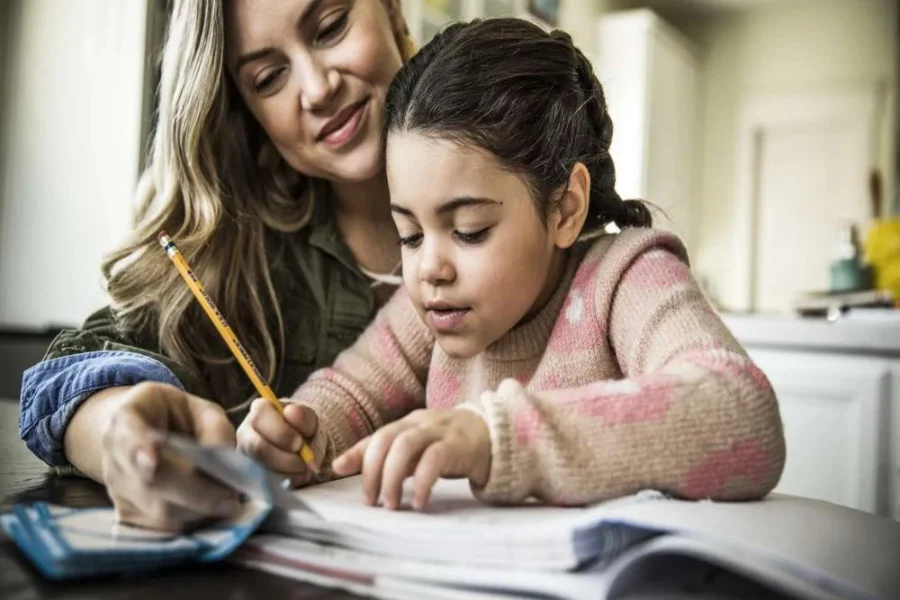Source: reviewofoptometry
Learning Difficulties refer to conditions that have an impact on the learning competencies of the child that form the base for their successful lives ahead.
They affect a child’s ability to read or write, speak, or understand math. They will get frustrated, and their confidence may take a hit from having Learning Difficulties if they are not supported and given the correct approaches quickly.
But by supporting Learning Difficulties with the right strategies and continued encouragement, students will develop important skills despite their Learning Difficulties. In this blog, we discuss signs and helpful ways to build a positive learning environment.
How to Help Someone Who is Struggling to Learn?
It takes patience, understanding and a way to support someone who fights to study. Each student has a specific step, and knowing what they need will make a difference.
Here are some simple ways to help someone with learning challenges:
Identify the Problem
- Look at where they seem to struggle – is it reading, writing, attention, or understanding?
- Communicate with them about how they feel about learning.
- Take inputs from experts who may have dyslexia and learn about their experiences dealing with Dyslexia, ADHD or processing challenges.
Be concise
- Break information into smaller parts.
- Use short sentences and repeat instructions if needed.
- Avoid overworking the student with too much information at once.
Provide Visual and Hands-on Support
- Use charts, pictures, or videos to explain topics.
- Let children take the lead to learn by themselves through experimental learning.
Build Confidence
- Recognise and acknowledge the smallest achievements of the child.
- Do not resort to any sort of criticism for the child.
- Goals set for the child should be realistic and appropriate for them to attain comfortably.
Build a conducive learning environment
- Minimise distractions and provide a noise-free place to study.
- Allow extra time for completing tasks.
- Encourage breaks to help maintain focus.
Be Patient and Consistent
- Repeat lessons as needed without expressing frustration.
- Follow a consistent routine to reduce any anxiety or fear that the child might have towards untold changes.
Providing support for individuals with learning difficulties should not be by loading them with extra work or too many strategies, but by implementing plans that are innovative, making learning joyous and stress-free.
For more details of the Best LD Course, Call / WhatsApp on +919321024137 / +919869866277.
Click here to download the Best LD Course brochure!

Source: joyfultots
How can a Teacher Help a Child with Learning Difficulties?
Special Educators with their rigorous training and thorough understanding of different aspects of learning difficulties can make a huge impact on the child’s academic journey. A Teacher plays a major supporting role in the child’s life by understanding their struggles closely and arriving at appropriate strategies that address the areas of concern, enhancing their learning outcomes.
By creating a positive learning environment and implementing ideal strategies, the child can navigate their daily tasks effectively and gain confidence to be totally engaged in the learning process and be self-reliant to address their challenges efficiently.
Recognise the warning signs early
- Be mindful of ongoing challenges with reading, writing, speaking, or math.
- Watch for attention issues, forgetfulness, or slow processing.
- Participate in discussions with parents to get background and observation information.
Modify Teaching Strategies
- Lessons to be simplified by dividing them into convenient steps for better learning.
- Capitalise on the strengths of the child by implementing multi-sensory teaching methods.
- Do a recap of what is completed regularly in an understandable language.
Offer Additional aid
- Give them the benefit of additional time, which they are entitled to.
- Conduct remedial classes consistently to give them individualised attention.
- Incorporate the latest technological tools for enhanced learning.
Boost the child’s confidence
- Appreciate the child’s hard work by mentioning it in the classroom to the other classmates.
- Goals set should be realistic and can be achieved with minimal stress, and should be learner-Centred.
- Never compare 2 children, as it can severely impact their overall emotional well-being.
Work with other professionals
- Make efforts to work along with special educators, counsellors, and parents to provide the child with better plans.
- Take inputs from other professionals to devise better classroom strategies.
- Be in touch with parents to help them foster the child’s learning at home and keep a proper record of the child’s progress.
Handling the challenges that come along with learning difficulties can be overwhelming, but using appropriate strategies and consistent efforts can help make a positive influence on the overall progress of the child and work wonders for his emotional well-being, too.
For more details of the Best LD Course, Call / WhatsApp on +919321024137 / +919869866277.
Click here to download the Best LD Course brochure!

How to Motivate a Child with Learning Difficulties?
Supporting a child with a learning disability necessitates all of these, considering whatever approach, patience, and approaches that will work for that child. They may have lost all motivation due to frustration from repeated failures, but if they are supported, the child can develop motivation, confidence, and a positive attitude towards learning possibilities.
Here are some examples of how you can help them stay motivated:
Focus on their key points
- Observe the child and make note of their greatest strengths and accordingly devise lessons that involve making use of them effectively.
- Insist on using those skills, especially to kickstart any topic.
Design realistic learning goals
- Set appropriate goals easy to achieve and not too challenging for the child’s potential.
- Create short-term goals to ascertain if the strategies used are helping the child to progress.
Provide Regular Help
- Praise effort more than results to help build self-worth.
- Use positive language and avoid criticism that can lower motivation.
Be Innovative
- Do not stick to age-old rote blackboard methods of teaching and explore options such as games, hands-on activities, and stories for teaching them, keeping them engaged throughout.
- Give them the freedom to choose their assignments so that they can work their best and give their best efforts.
Be Patient and Consistent
- Avoid rushing the child; give enough time to process and complete tasks.
- Do not incorporate last-minute changes in the child’s schedules, as that can make them anxious.
Child-centered process
- Let the child decide how they want to learn and which methods to follow for better learning.
- Take inputs from them about the ways they would want to learn, helping them maintain proper focus.
Focus on emotional well-being
- Understand the child’s different emotions and help them realize that these emotions can be handled effectively.
- DO not rush into criticizing the child if the progress is not as per the plan.
With the right encouragement and consistent support, a child with learning difficulties can feel motivated to try, learn, and grow at their own pace.
For more details of the Best LD Course, Call / WhatsApp on +919321024137 / +919869866277.
Click here to download the Best LD Course brochure!

How do you Support Learners with Learning Difficulties?
While helping students with learning needs, we need to think about our delivery, emotional support, and working with specialists. Every student learns in his/her own way, with their own strengths, weaknesses and learning needs and making the learning meaningful will help them academically succeed and socialise positively.
Below are some supporting examples:
Promote Higher Self-Esteem as a Result of a Reward System
- Success, no matter how small, should be enough for a person to develop some level of self-confidence.
- Pay more attention to what the student can do as opposed to what he or she is not able to do.
Lift the child’s morale and self-esteem
- Celebrate every small achievement of the child.
- Give importance to the things that the child has achieved and not where he is faltering.
- Avoid negative tags and always use positive words.
Use Structured and Clear Instructions
- Organise tasks into clear steps that are simple/manageable.
- Provide the same instruction and re-emphasise instructions when needed.
- Use visual cues or checklists to aid memory and understanding.
Collaborate with Families and Experts
- Keep parents informed about progress and challenges.
- Work with special educators to design individualised learning strategies.
- Refer to professional development resources, such as the Learning Disability Course offered by Vidhyanidhi Education Society, to enhance your approach.
Seek Professional Training
- Teachers and caregivers can benefit from formal training.
- Enrolling in a Learning Disability Course equips educators with practical skills to support struggling learners.
The Learning Disability Course offered by Vidhyanidhi Education Society (Govt. Regd.) provides a comprehensive understanding of how to identify, assess, and manage different kinds of learning difficulties effectively.
By implementing these strategies and reinforcing your skills through appropriate training, you can make a positive difference to the learners with learning disabilities.
Join our Best LD Course at Vidhyanidhi Education Society!
For more details of the Best LD Course, Call / WhatsApp on +919321024137 / +919869866277.
Click here to download the Best LD Course brochure!
FAQs
How do you help someone who does not want to learn?
Explore interests, reduce pressure, be entertaining, and build rapport in an effort to gently raise curiosity and willingness to try.
What are the barriers to learning?
Learners can have low confidence, unclear teaching methods, emotional stress, and unknown learning challenges.
Who is a Struggling Learner?
A struggling learner finds it hard to grasp concepts despite regular effort. They may need support, strategies, or training like Vidhyanidhi Education Society offers.




